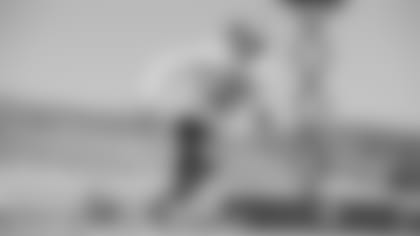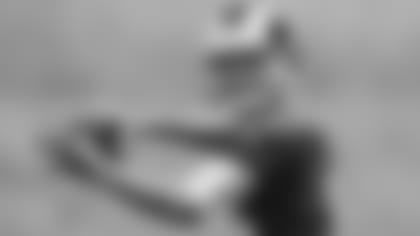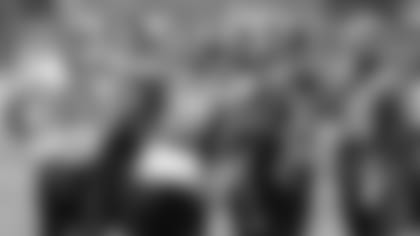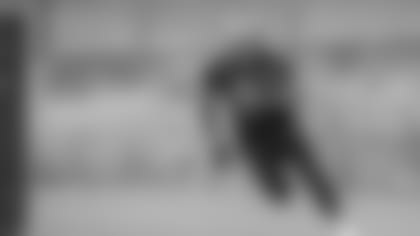Entering Week 5, the Rams led the NFL in scoring with 142 points. First year head coach Sean McVay had rejuvenated an offense that ranked No. 32 for the last two seasons. And the unit was looking efficient under quarterback Jared Goff, who was distributing the football to a variety of playmakers, including running back Todd Gurley — September's NFC Offensive Player of the Month.
But while the Rams as a whole have looked vastly improved this season, Sunday's 16-10 loss to the Seahawks pointed out a significant issue with the team's offense: Los Angeles has a problem scoring in the red zone.
"It wasn't so much we weren't moving the ball, we just weren't finishing drives," Goff said after Sunday's contest. "That's what it came down to, we just weren't finishing drives. We got into the red zone and we didn't do a very good job and that's what shows up."
The Rams took four trips inside the Seahawks' 20-yard line on Sunday. Of those four drives, just one led to scoring — a 36-yard field goal attempt made by kicker Greg Zuerlein — and none of them ended in the Rams crossing the goal line.
"It felt like a lot of little things that one, didn't go our way, or two we hurt ourselves," left tackle Andrew Whitworth said. "If you don't execute at a really high level, you don't win."
"I think it was extremely frustrating after the game," McVay said Monday, "and still frustrating when you go back and look at it."
Sunday's loss continued a red zone pattern that began in Week 5's victory over Dallas. Though the Rams' scored 35 points against the Cowboys, the team reached the end zone just twice, settling for seven field goals from Zuerlein.
Overall, the team has scored just one touchdown in its last eight trips to the red zone — the rest of those drives have ended in several field-goal attempts, an interception, a fumble, and a turnover on downs. Los Angeles is now the No. 24 ranked team in terms of red zone scoring percentages, crossing the goal line just 43.87 percent of the time.
On Monday, Mcvay was asked what he believes is the reason for the Rams' struggles inside the 20-yard line. He said it starts with himself as a playcaller.
"To Seattle's credit they did a good job," he said. "That's why they are a highly ranked red-zone defense. But I definitely need to look at myself and make sure that with some of the passes when you're going incomplete — are we giving good, high percentage throws like we did early on when we were having some success? And then we have got to run the football efficiently as well."
Goff, however, called the team's red zone struggles a problem of execution, not play calling.
"We need to be sharper," he said. "I can do a better job of understanding what they're going to do coming into it. Getting the ball out of my hands a little quicker would probably help and then we need to make plays. We need to make plays all over the field. Ultimately that's why we lost the game."
This week, against the Jaguars, Los Angeles will face off against another elite defense, one that will challenge the offense's ability to improve its red-zone efficiency. But fortunately for the Rams, McVay referred to the team's mistakes this past weekend as "fixable things that we can correct," not extreme areas for concern.
"We can do a better job of emphasizing it as a coaching staff and then it's on the players then to be able to fix those things," he said Monday. "We've got the right kind of guys in that locker room to be able to look at themselves critically in the mirror and figure out what they can do to be a part of the solution."
"That's kind of what today was, is figure out what we can do to fix that and then we'll come back Wednesday with a plan for the Jacksonville Jaguars."














